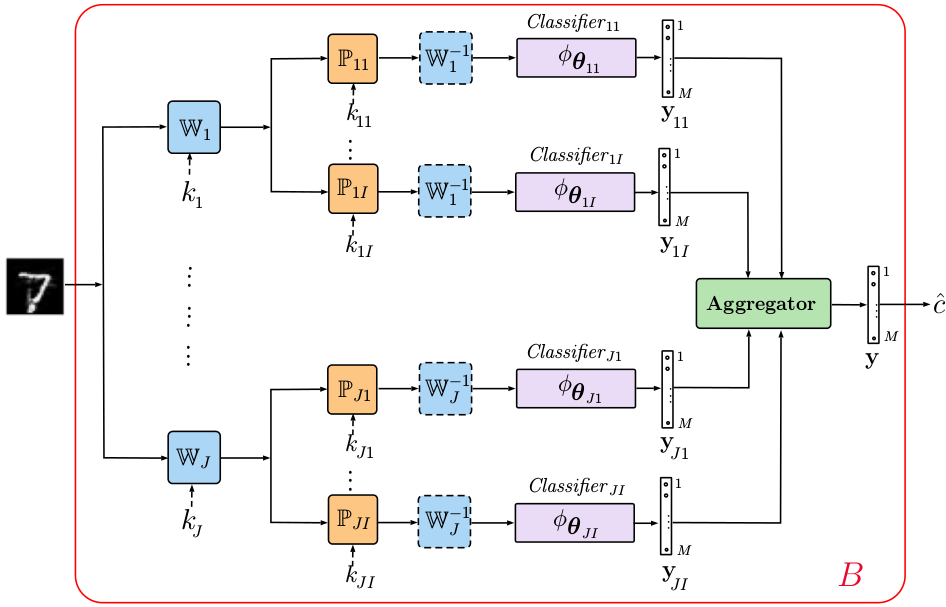Defending against adversarial attacks by randomized diversification
The vulnerability of machine learning systems to adversarial attacks questions their usage in many applications. In this paper, we propose a randomized diversification as a defense strategy. We introduce a multi-channel architecture in a gray-box scenario, which assumes that the architecture of the classifier and the training data set are known to the attacker. The attacker does not only have access to a secret key and to the internal states of the system at the test time. The defender processes an input in multiple channels. Each channel introduces its own randomization in a special transform domain based on a secret key shared between the training and testing stages. Such a transform based randomization with a shared key preserves the gradients in key-defined sub-spaces for the defender but it prevents gradient back propagation and the creation of various bypass systems for the attacker. An additional benefit of multi-channel randomization is the aggregation that fuses soft-outputs from all channels, thus increasing the reliability of the final score. The sharing of a secret key creates an information advantage to the defender. Experimental evaluation demonstrates an increased robustness of the proposed method to a number of known state-of-the-art attacks.
PDF Abstract CVPR 2019 PDF CVPR 2019 Abstract